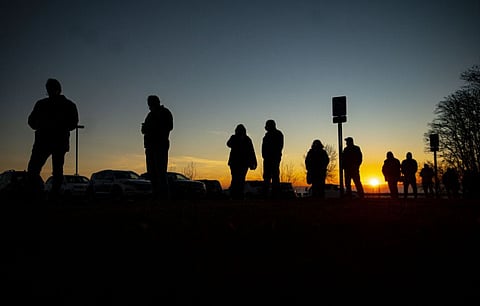US Elections 2020: This is not a normal election day
Rarely has an American presidential election concluded with so much dread and foreboding

I’ve written a lot of items about how much I love Election Day and the affirmation of democracy that it represents. But this time around I have to agree with Larry Sabato: “Never in my 60 years around politics have I encountered this many people so tense, so full of dread and foreboding about an election — and what comes afterward. Of course, we’ve never before had a president undermining confidence and predicting fraud & mayhem — if he doesn’t win.”
That was before President Donald Trump applauded a group of supporters who attacked one of Joe Biden’s campaign buses; before it was reported that Trump plans to claim victory well before the votes are counted; before Trump’s staffers went on the Sunday shows and talked about their plans to stop states from counting legitimate ballots after Election Day; before the president talked about unleashing a blizzard of lawsuits as soon as the polls close; before he started fantasising in public about assaulting Biden; and before Trump supporters shut down highways as part of ... a protest? A threat? It wasn’t quite clear.
In other words: Before Sunday. Of course, Trump has been stirring up chaos around the election for months. It’s possible that this is all part of a systematic plan to disenfranchise Biden voters. More likely it’s just the way this president operates, without any particular goal in mind. Claiming that he’s being cheated is second nature to Trump, the way most presidents automatically pledge loyalty to the entire nation and its laws and democratic customs.
It’s worth keeping in mind that Trump’s bluster is generally worse than his follow-up, and that the biggest danger in what he says is often the reaction (or overreaction) that it causes. So everyone should listen to Richard H. Pildes and Rick Hasen, who remind us “not to undermine our elections by giving excessive play to typical, Election Day problems or hastily spreading viral posts before the facts are verified.”
Plenty of minor glitches
While it’s possible that there will be serious disruptions this year, things could also go as smoothly as ever — which means that there will be plenty of minor glitches. As Pildes and Hasen point out, it’s critical that the news media separate the important from the trivial, and that everyone avoid spreading stories over social media without being sure that they’re true.
But we’ve already reached the point where it’s hard to treat this Election Day as the celebration of democracy it normally is. Instead, folks like me need to remind everyone that they shouldn’t panic about rumours. That it’s absolutely normal for the count to take days, and that no one has won any state until all the votes are counted. That voter fraud remains extremely rare.
That, fair or not, it’s the electoral vote, and not the raw total vote, that determines the outcome in presidential elections. That accuracy, not speed, is the most important goal of tabulating the vote. That every legitimate vote needs to be counted. And so all sensible American citizens are reduced to reciting the election administrator’s prayer — please let the winner win in a landslide — instead of rejoicing in the renewal of the republic.
Jonathan Bernstein is an opinion columnist covering politics and policy. He taught political science at the University of Texas at San Antonio and DePauw University
Bloomberg







